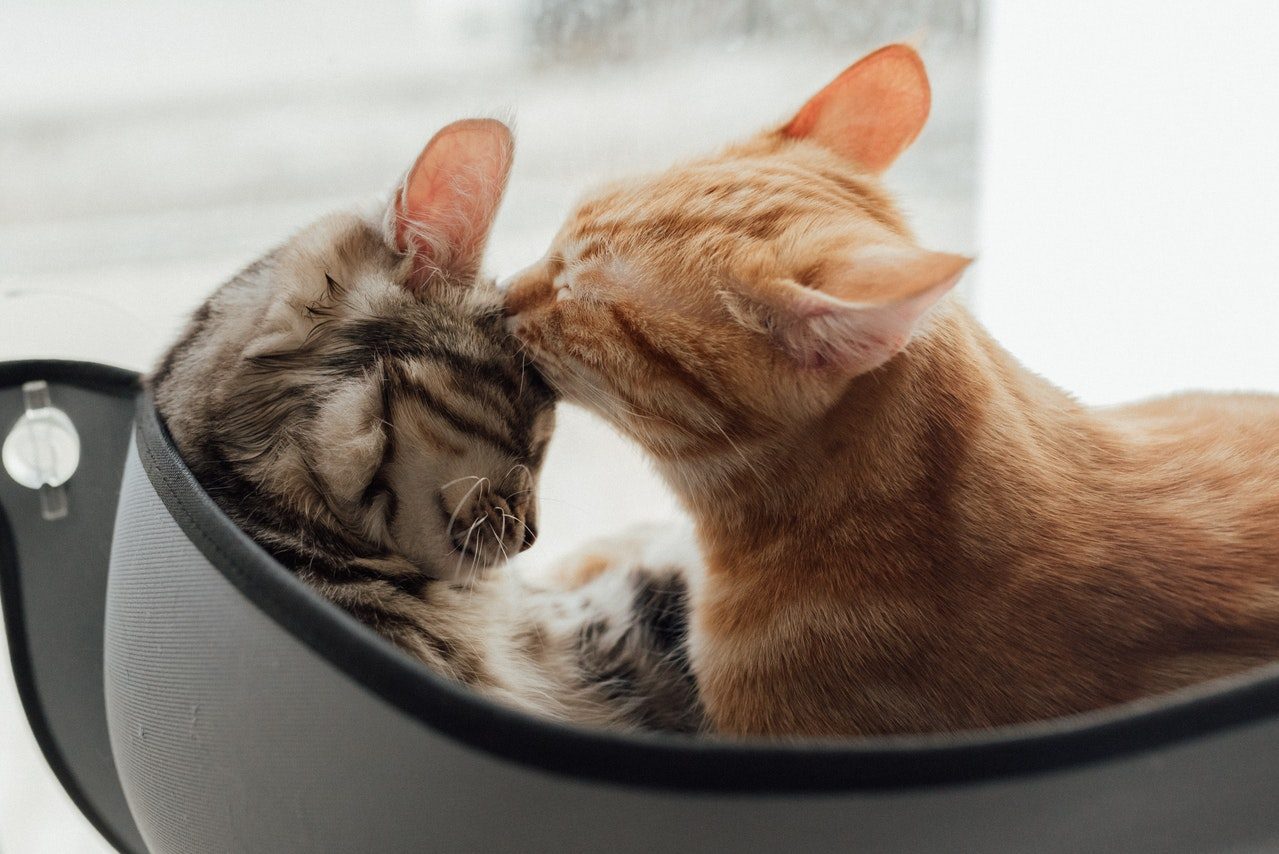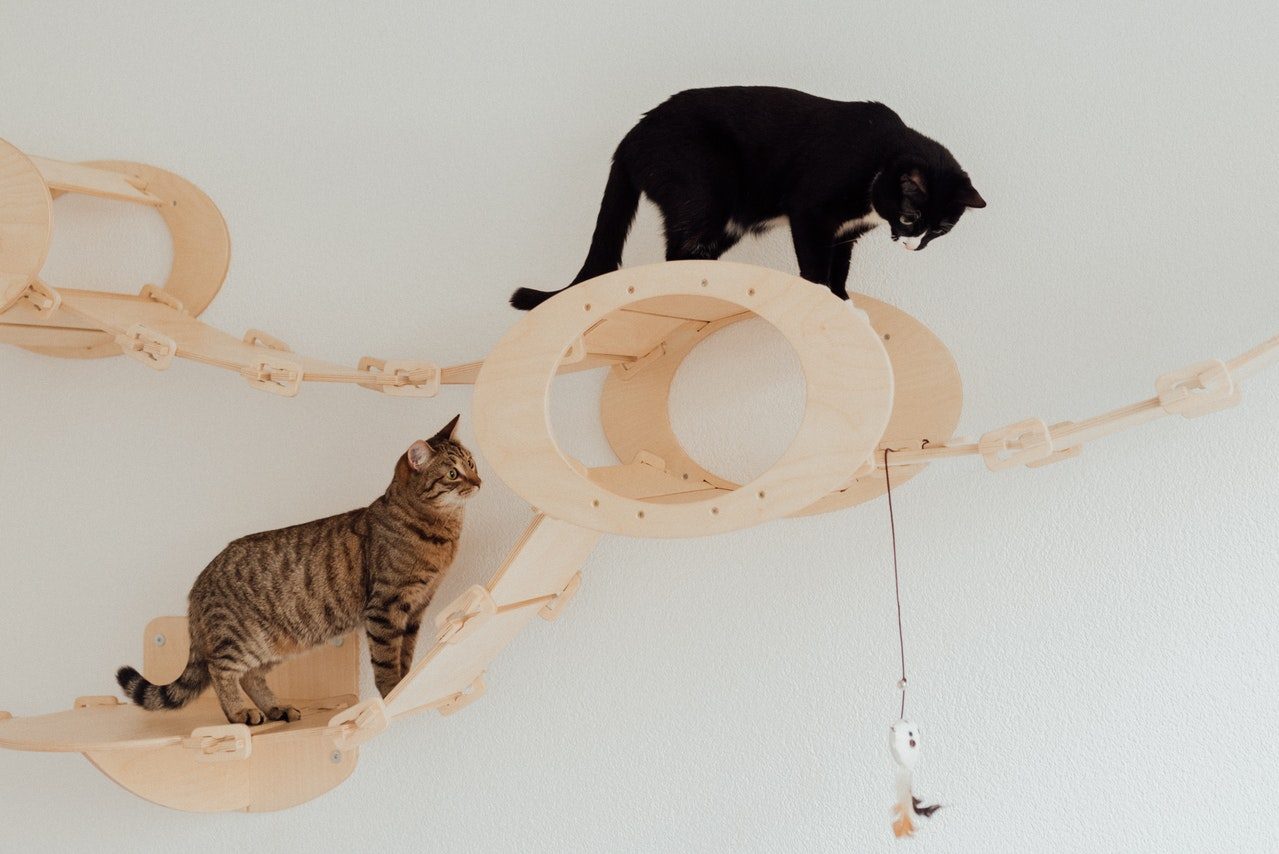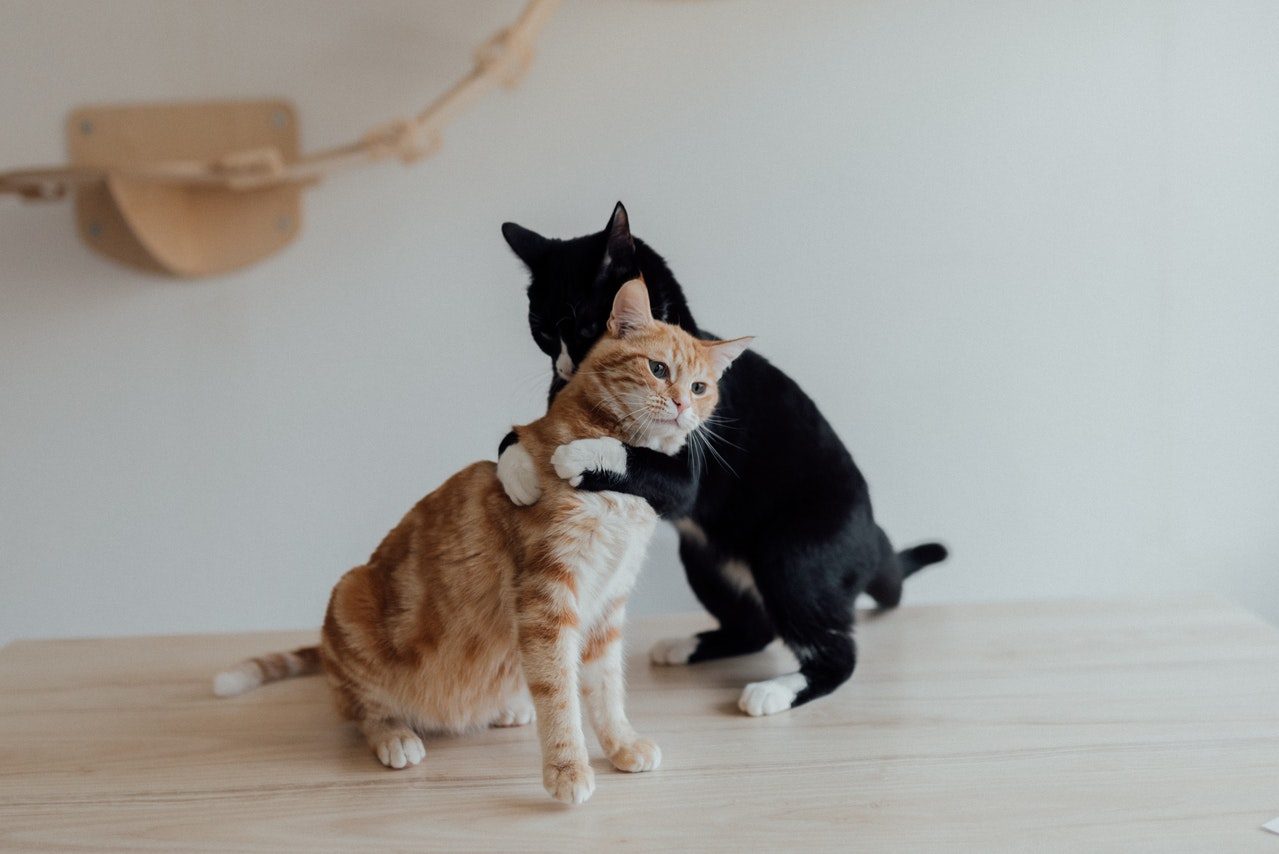Peanut butter and jelly. Tom and Jerry. Milk and cookies. Mario and Luigi. Some of the best things in life belong together, but are cats meant to have a feline bestie? Have you decided that one cat simply isn’t enough? Or are you considering a second cat because your fur baby is exhibiting signs of loneliness, such as nonstop meowing or litter box issues? We’ve done the research for you: Here’s everything you need to know about whether or not you should adopt a second cat.

Should my second cat be male or female?
There’s a lot of misinformation about cats. The species is considered aloof, but, as it turns out, this supposedly stereotypical feline trait is actually due to past experience with humans. In fact, most standoffish cats have been abused, improperly socialized, or simply need time to adjust to a new environment. Other misconceptions range from silly, such as the outdated belief that a cat will steal a baby’s breath, to downright dangerous: some people think it’s safe for cats to eat chocolate.
Similarly, conventional wisdom has led many pet parents to believe that a cat’s gender is vitally important when adopting a second cat. But the experts say otherwise. A cat’s age and personality, rather than gender, are much more important factors to consider when you’re adopting your second fur baby. Because cats are territorial, they may feel threatened by the addition of an adult cat. Consider adopting a kitten — choose the most laid-back of the litter — or adopt a calm and friendly adult if you have your heart set on rescuing an older cat.
Should I get a male or female cat if I have a male cat?
While some people claim that two cats of the same sex will fight for dominance, cat behaviorists disagree. Instead of choosing a second cat solely on the basis of gender, you’ll want to put more thought into the adoption process. Here are a few questions you should ask yourself before you decide to bring home that precious kitty you saw on Facebook.

Has my male cat been neutered?
Because removing your cat’s testicles also removes his testosterone source, 90 percent of male cats will be much less likely to exhibit hormone-driven behaviors. Introducing a second neutered male should be a safe bet unless the cats have extremely different temperaments.
What is my cat’s temperament like?
Some cats are playful and energetic, while others are gentle and calm. If your fur baby loves to pounce and play, adopting a shy, sensitive cat could be a recipe for disaster. It’s possible that your new kitty will teach your current fur baby how to be more outgoing, but it’s equally possible that your current cat will feel like he’s being bullied and become more reclusive. For a more harmonious home, try to adopt cats with similar personalities.
How old is my cat?
Adult cats tend to be set in their ways, so if you adopt a cat of a similar age, your fur baby may see the newcomer as a rival. On the other hand, even adult male cats are known to adopt young kittens, so that might be a better way to go. However, kittens require a great deal of attention. Another good option? Adopting a senior cat. Senior cats tend to be relaxed, so they may settle into their new environment — and befriend your current cat — with ease.
Are cats happier in pairs?
Even if you work from home and spend the majority of your time with Miss Mittens on your lap, you could be doing her a disservice by maintaining a single-cat household. According to cat behaviorists, most cats are happier and healthier when they have a feline companion. Not only will having a second cat help prevent loneliness, but your current fur baby might even become friendlier.

Despite their reputation, cats are inherently social creatures. Providing your cat with a feline companion will give him the stimulation he needs to burn off excess energy, which can improve his mental state and make him more sociable. However, we recommend speaking with your vet before you decide to adopt another cat. Don’t assume that your fur baby is lonely if your cat’s mood, behavior, or eating and sleeping patterns change. The symptoms of loneliness often mimic symptoms of a serious health condition. It’s always better to be safe than sorry when it comes to your cat’s health.




